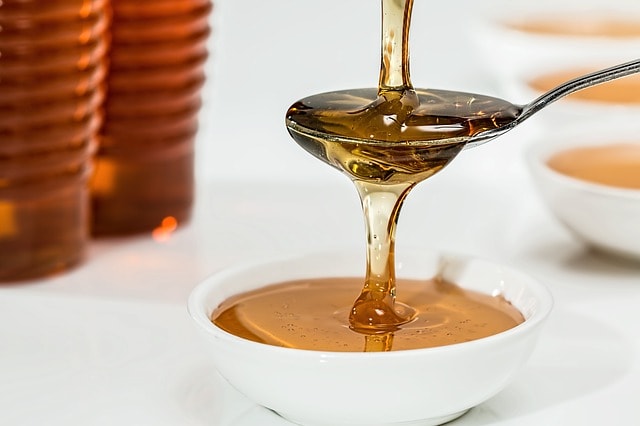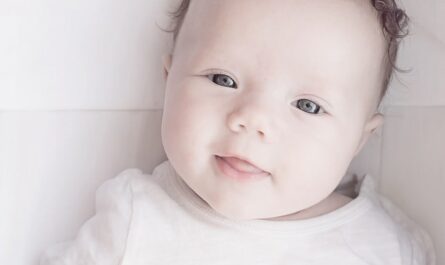 Think Your Baby Has Thrush? Know All about the Condition
Think Your Baby Has Thrush? Know All about the Condition
Do you see a white coating or white patches on your baby’s tongue and elsewhere in the mouth?
It is possible that your baby has oral thrush, a fungal infection that is common in babies and young children but can also affect adults. It’s usually harmless but is best treated as soon as possible.
It is also possible that the white coating on your baby’s tongue is nothing more than milk coating. This is especially true if the patches can be rubbed off easily.
Does your baby have thrush or just milk tongue?
To determine if the white patches on your baby’s tongue and mouth are something you should worry about, try to wipe them off using a soft cloth.
If the white coating rubs off easily, then your baby has nothing more than a milk tongue. It should go away when you wipe it off and will be permanently gone when your baby starts eating solid foods.
However, if the white coating stays, it’s most likely thrush.
It is best to consult your pediatrician if you suspect your baby to have thrush.
It usually takes 14 days of antifungal course to completely eliminate the yeast. During this period, it is best to avoid dairy products and sugars, both artificial and natural.
How babies get thrush
Thrush is caused by an overgrowth of Candida albicans, a type of fungus or yeast.
It is likely that the infection started in your birth canal and your baby picked it up while on their way out.
Candida naturally occurs in the mouth and digestive tracts of people and infants. The normal growth of the fungus is usually controlled by some good bacteria and a healthy immune system.
But with a weakened immune system due to illness or medicines and, in the case of babies a not fully developed immune system, an overgrowth of Candida in the digestive tract can occur, resulting in a vaginal infection and diaper rash.
This is why some babies have both oral thrush and diaper rash.
Thrush is usually picked up at birth and is most common in newborns and under two-month-old babies.
White tongue can also occur when babies are given antibiotics for a bacterial infection. When the medication kills off the good bacteria, there is an overgrowth of candida.
In some cases, thrush is caused by a growth of yeast on a mother’s breast if it is not properly dried after feeding. With the baby’s mouth being overly moist due to use of pacifiers or bottles, the yeast will have the perfect environment to thrive.
Is thrush dangerous or contagious?
As previously mentioned, thrush is usually harmless. But your baby may feel uncomfortable when feeding or becomes overly fussy. No one wants to see a hungry baby that finds it painful to eat.
Thrush, however, is contagious because the yeast infection is passed from the baby’s mouth to the mother’s breast and vice versa.
If left untreated, the baby will have thrush and the mother’s nipples will be sore and painful.
What are symptoms of oral thrush?
Signs and symptoms of oral thrush in babies include:
- White patches on the tongue lips or inside the cheeks
- Cracked corners of the mouth
- Decreased sucking due to a painful mouth
- Reduced milk intake due to uncomfortable feeding
- Mild discomfort in most newborns
Signs and symptoms of nipple thrush in mothers include:
- Cracked, flaky, and sensitive areolas and nipples
- Color changes in the areolas and nipples
- Pain during and after feeding
Because oral thrush can cause nipple thrush and vice versa, it is important to be aware of the signs and symptoms of both conditions. You should also note that newborns may not show any symptoms of thrush.
How to treat oral thrush in babies
An antifungal medicine is usually prescribed by a GP or health visitor to treat oral thrush.
The two main medicines often used in babies are Miconazole and Nystatin that must be used up to 4 times a day, preferably after the baby has fed or taken a drink.
The medicine is prescribed to be used continuously for 2 days after the infection has cleared to prevent it from coming back.
If thrush persists after a week of treatment, consult your GP or health visitor again.
Breastfeeding mothers with nipple thrush should treat the infection as well.
An antifungal cream is prescribed for treatment and should be used after breastfeeding. Before the next feed, the nipples must be cleaned of the cream.
For severe cases of nipple thrush, antifungal tablets may be prescribed.
Is oral thrush preventable?
It is not clear if oral thrush is preventable, but doctors suggest to regularly sterilize dummies and feeding equipment.
Washing hands thoroughly is also recommended to prevent the spread of infection and from being passed to the digestive system.
It would also help to keep your nipples clean when breastfeeding.
When to seek medical advice
Seek medical advice when you suspect that your baby has the condition and after you’ve tried to wipe the white patches off with a soft cloth. Don’t wait for the baby to develop other symptoms, such as dehydration, fever, or bleeding in the mouth.



